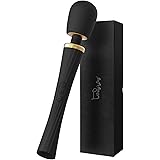The Power of Self-Reflection: Journaling About Your Sexual Experiences

Introduction to Self-Reflection and Journaling
Self-reflection is an essential practice that allows individuals to examine their thoughts, emotions, and experiences. It serves as a powerful tool for personal growth and development, facilitating a deeper understanding of oneself. By engaging in self-reflection, one can explore memories, assess beliefs, and identify patterns that influence behavior. This process can lead to increased emotional intelligence and a more profound sense of self-awareness, which are crucial elements in navigating life’s challenges.
Journaling complements self-reflection by providing a structured yet personal means of expression. Traditionally, journaling has roots in various cultures, as it has been used as a method for documenting daily occurrences and feelings. Historically, figures such as Anne Frank and Virginia Woolf utilized journaling to articulate their innermost thoughts and experiences. In contemporary society, the relevance of journaling has been amplified by its therapeutic benefits, encouraging individuals to maintain a dialogue with themselves.
When it comes to sexual experiences, journaling can serve as a uniquely effective form of self-reflection. It offers a private space to articulate feelings, confront insecurities, and derive insight from intimate moments. Writing about sexual experiences can help individuals process complex emotions, evaluate relationships, and make sense of their desires and boundaries. By fostering a safe environment for reflection, journaling enables a healthier understanding of one’s sexuality, thus promoting acceptance and personal growth.
In today’s fast-paced world, the practice of journaling about one’s sexual experiences can be particularly invaluable. It encourages openness and vulnerability, allowing individuals to explore their feelings without judgment. In this way, self-reflection through journaling emerges not only as a means of personal exploration but also as a vital component in the journey toward sexual identity and fulfillment.
Understanding Your Sexual Identity
Understanding one’s sexual identity is a crucial aspect of personal development and self-acceptance. Sexual identity encompasses how individuals perceive themselves in relation to their sexual orientation, preferences, and romantic interests. This understanding is not always straightforward, as societal norms and expectations can often complicate one’s journey toward self-discovery. Through the act of journaling, individuals can embark on a transformative path to articulate their desires and preferences more clearly.
Journaling serves as a powerful tool for self-exploration, allowing individuals to document their thoughts, feelings, and experiences related to their sexuality. By writing regularly, people can examine their emotions and behaviors without judgment, creating a safe space for exploration. This reflective practice not only aids in identifying personal desires but also fosters an environment of acceptance and understanding. The written word often becomes a mirror, helping individuals confront the complexities of their sexual identities and question societal expectations.
Moreover, journaling can facilitate a deeper insight into past experiences, whether positive or negative, and their influence on one’s sexual identity. By recording significant moments, individuals can gain clarity about how these experiences shape their beliefs and attitudes towards sexuality. Reflecting on past relationships and encounters may reveal patterns or preferences that were previously unrecognized, catalyzing a greater awareness of one’s authentic self.
As individuals delve deeper into their journaling practice, they may discover a renewed sense of empowerment and confidence in their sexual identity. This process can lead to a more profound self-acceptance, encouraging individuals to embrace their uniqueness. The journey through self-exploration and articulation of one’s sexual identity is indeed a powerful endeavor that journaling can significantly enhance.
The Emotional Benefits of Journaling About Sexual Experiences
Journaling about sexual experiences can significantly enhance emotional well-being by fostering greater emotional awareness and regulation. Engaging in this reflective practice allows individuals to articulate their feelings surrounding intimacy, relationships, and personal desires, thus bringing clarity to complex emotions. As one writes, they are often able to process experiences in a way that reveals patterns in their emotional responses, which may otherwise go unnoticed. This heightened awareness can lead to better understanding one’s needs, preferences, and boundaries in sexual contexts.
Moreover, writing about sexual experiences can be a powerful tool for reducing anxiety associated with sexuality. Many individuals struggle with feelings of shame, guilt, or confusion around their sexual identities and experiences. By placing these emotions onto paper, individuals can confront their fears in a controlled and safe environment, ultimately leading to desensitization of those anxieties over time. The act of journaling serves as a therapeutic release, offering a means to transition from a place of apprehension to one of empowerment and acceptance.
In addition to facilitating the processing of emotions, journaling can play a critical role in healing from past traumas related to sex. Many individuals carry emotional scars that affect their current relationships and self-perceptions. Writing offers a platform to examine these traumas, acknowledge the pain, and begin fostering a sense of forgiveness and self-compassion. This gradual healing process may improve emotional regulation, enabling individuals to respond to future intimate encounters with resilience rather than fear.
Ultimately, the practice of journaling about sexual experiences contributes to overall emotional well-being. As individuals explore their innermost thoughts and feelings, they may find that they develop healthier perspectives on their sexuality and more fulfilling relationships. By creating a space for honest reflection, journaling becomes a vital tool for emotional healing and growth.
Prompts for Reflecting on Desires and Fantasies
Self-reflection through journaling can be a transformative practice, especially when exploring desires and fantasies. To engage deeply in this exploration, consider integrating the following prompts into your journaling routine. These prompts are designed to encourage honest reflection and help uncover the layers of your innermost thoughts.
1. **What does intimacy mean to you?** This prompt invites you to examine your personal definition of intimacy, which often encompasses emotional closeness, physical affection, and trust. Write about experiences that have shaped your understanding of intimacy and how these experiences influence your current desires.
2. **What fantasies have you been hesitant to explore?** Reflect on the fantasies you may have set aside due to fear or uncertainty. What are the underlying reasons for this hesitation? By acknowledging these fantasies, you can evaluate their significance in your life and the potential for exploration.
3. **Describe a perfect intimate moment.** Envision an ideal scenario that ignites passion and connection. Capturing this moment in detail allows you to articulate your desires, offering insights into your preferences and needs within intimate relationships.
4. **How do societal norms influence your desires?** Take time to consider how cultural or societal standards impact your understanding of sexual experiences. Analyzing these influences may reveal discrepancies between what you truly desire and what you feel obligated to pursue.
5. **What fears do you associate with your desires?** Identifying fears can be a powerful step towards understanding your desires more clearly. Journaling about these fears enables you to confront them and reassess how they guide your actions.
Utilizing these prompts consistently in your journaling practice not only fosters a safe space for exploration but also allows you to gain clarity about your desires and fantasies. By dedicating time to this deep reflection, you enhance your understanding of what truly resonates with you in your sexual life.
Exploring Past Experiences Through Journaling
Journaling offers a unique opportunity for individuals to delve into their past sexual experiences, serving as an essential tool for self-reflection and personal growth. By dedicating time to write about these experiences, one can analyze various aspects, including feelings, motivations, and outcomes associated with each encounter. This act of reflection encourages a deeper understanding of individual behavior and can illuminate patterns related to consent, pleasure, and personal boundaries.
The process of journaling can help individuals uncover what they truly value in intimate situations. For instance, reflecting on past experiences might reveal moments where consent was clear or situations that blurred boundaries. By recognizing these instances, individuals can learn to better communicate their needs and limits in future relationships. Additionally, journaling can facilitate the exploration of pleasure—what brings joy, what feels uncomfortable, and how these experiences have shaped one’s sexual identity. This retrospective examination allows one to cultivate a more robust sense of self-awareness, critical for cultivating healthy interactions.
Another significant benefit of journaling about past sexual encounters is the potential for healing. Many individuals carry emotional baggage from previous experiences, whether positive or negative. Writing about these events can provide a safe space to process emotions, enabling individuals to make sense of their feelings and possibly come to terms with unresolved issues. This reflective practice not only promotes emotional awareness but can also foster resilience, as individuals learn from both uplifting and challenging experiences. Ultimately, journaling serves as a bridge, linking past experiences to future opportunities, encouraging growth, and enhancing sexual well-being.
Creating a Safe Space for Journaling
When embarking on the journey of journaling about your sexual experiences, the establishment of a safe and comfortable space is crucial. This environment fosters openness and honesty, allowing for a deeper exploration of your thoughts and feelings. To start, identify a location that is private and free from distractions. This could be a quiet room in your home, a cozy corner, or even a peaceful outdoor area. The key is to choose a setting where you feel at ease and can express yourself without fear of interruption.
In addition to selecting the right physical space, consider the materials you will use for your journaling practice. A beautiful notebook, for instance, can enhance your writing experience, while a reliable pen can provide a sense of permanence to your thoughts. Some individuals may prefer digital journaling options, such as apps or word processors, which can offer privacy through password protection. No matter the medium, ensure that it aligns with your personal comfort level and enhances your self-reflection process.
Establishing a regular journaling practice is equally important in creating a secure space for reflection. Designate specific times in your schedule to commit to your journaling practice, whether that be daily, weekly, or whatever frequency feels right for you. Consistency fosters a habit, making it easier to articulate your experiences and emotions over time. Build a routine that encourages you to relax and immerse yourself in the practice, whether that involves lighting candles, playing soft music, or enjoying a warm beverage by your side.
By thoughtfully cultivating a private and nurturing environment, you can significantly enhance your journaling experience. This intentionality allows for a greater exploration of your sexual experiences and feelings, creating an opportunity for personal growth and understanding.
Navigating Difficult Topics in Sexual Journaling
When engaging in sexual journaling, individuals may encounter various challenges, particularly when addressing difficult or taboo subjects. These topics often evoke emotional responses, and the fear of judgment can create barriers to honest self-reflection. The key to overcoming these obstacles lies in cultivating a safe and supportive environment for honest expressions. By approaching sexual experiences with openness and compassion, one can begin to explore sensitive topics without the weight of societal expectations or shame.
One strategy to navigate challenging content is to establish a clear intention for the journaling process. This intention serves as a guiding principle, encouraging the writer to focus on personal growth and understanding rather than self-criticism. It is crucial to remind oneself that all experiences—whether positive or negative—contribute to the multifaceted nature of one’s sexual identity. When addressing sensitive topics, such as trauma or feelings of inadequacy, it helps to adopt a non-judgmental stance, allowing the writer to process thoughts and emotions without fear of self-condemnation.
Another effective technique is mindfulness-based reflection. This approach encourages individuals to stay present and observe their feelings as they arise, creating space for awareness and acceptance. By practicing mindfulness in the context of sexual journaling, individuals can delve into their emotions with curiosity, rather than apprehension. Additionally, utilizing prompts or questions can facilitate deeper inquiry into difficult subjects. For instance, asking oneself what specific experiences elicited discomfort can open avenues for exploration and greater self-awareness.
Ultimately, the act of journaling about sexual experiences—especially the challenging ones—can be a profound mechanism for healing and self-discovery. By valuing honesty and maintaining a compassionate mindset, individuals can create a nurturing space for reflection, enabling a better understanding of their sexual lives and enhancing emotional well-being.
The Role of Mindfulness in Journaling
Mindfulness, defined as the practice of being fully present and engaged in the current moment without judgment, plays a crucial role in enhancing the journaling experience. When applied to the context of journaling about sexual experiences, mindfulness transforms an ordinary writing exercise into a profound exploration of self-awareness and emotional depth. By focusing on the here and now, individuals can delve deeper into their feelings, thoughts, and desires, leading to a more authentic expression of their sexual experiences.
Integrating mindfulness into journaling consists of several key practices. First, it encourages writers to set intentions before they begin. By reflecting on what they wish to achieve through their journaling, individuals can create a purposeful mindset that enhances clarity and focus. This initial step promotes a more meaningful reflection on sexual experiences, as writers are more likely to explore their emotions honestly, rather than merely recounting events.
Another essential element of mindfulness in journaling is the act of observation. Mindful journaling encourages individuals to observe their thoughts and feelings without interruption or self-criticism. This practice allows for a non-judgmental examination of sexual experiences and the associated emotions—pleasure, anxiety, shame, or excitement—resulting in richer insights. Writers may find that by acknowledging their feelings as they are, without labeling them as “good” or “bad,” they can cultivate a better understanding of their sexual identity.
Additionally, the mindfulness practice of gratitude can be integrated into journaling. Reflecting on positive aspects of past sexual experiences, even the challenges, helps foster a sense of appreciation for one’s journey. This enhances overall well-being and transforms journaling into a holistic practice of self-reflection. Ultimately, when individuals embrace mindfulness within their journaling, they can explore their sexual experiences with greater depth, leading to enhanced self-discovery and personal growth.
Conclusion: Embracing Your Journey of Self-Discovery
In the exploration of self-reflection through journaling about sexual experiences, several significant benefits have emerged. Engaging in this practice not only fosters greater self-awareness but also promotes empowerment and acceptance of one’s sexual identity. By articulating thoughts and feelings surrounding intimate experiences, individuals can better understand their desires, boundaries, and emotional responses. This ongoing process of self-examination cultivates a deeper connection to one’s sexuality, allowing for a more fulfilling and authentic life.
Moreover, journaling creates a safe space for individuals to express their thoughts without fear of judgment. This confidential setting encourages honesty and vulnerability, which are essential for genuine self-discovery. Through written reflections, one can confront past experiences, process emotions, and navigate the complexities of consent and relationships. This transformative journey can lead to improved communication skills with partners and enhanced emotional well-being.
It is crucial to acknowledge that self-reflection is not a finite process but rather a continuous journey. As individuals grow and evolve, so too does their understanding of themselves and their sexualities. Journal entries may transform over time, reflecting changes in perspectives and experiences. This dynamic aspect of journaling not only documents personal growth but also affirms the idea that self-discovery is a lifelong endeavor.
Therefore, we encourage readers to embrace their journey of self-discovery and the power that comes with journaling about sexual experiences. Each entry represents a step towards a richer understanding of one’s self. Ultimately, through the commitment to self-reflection, individuals can empower themselves to navigate their sexual lives with confidence, openness, and a renewed sense of identity.

























